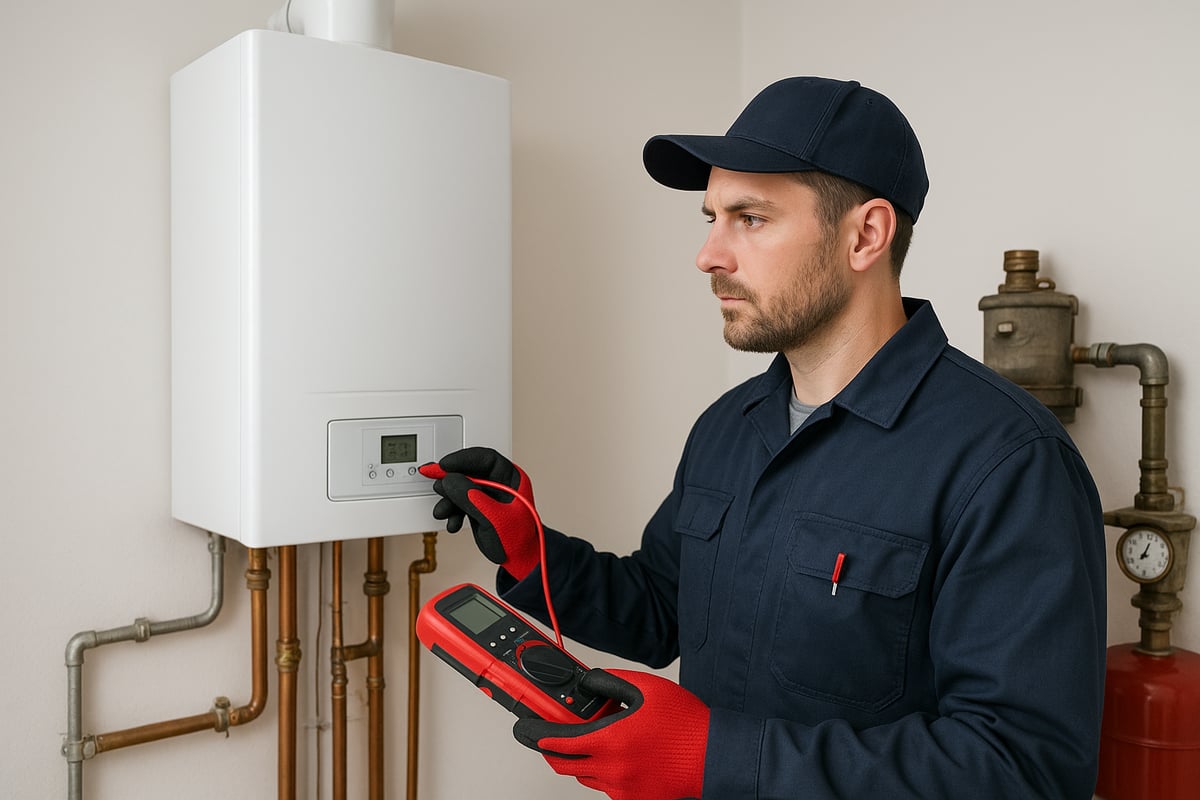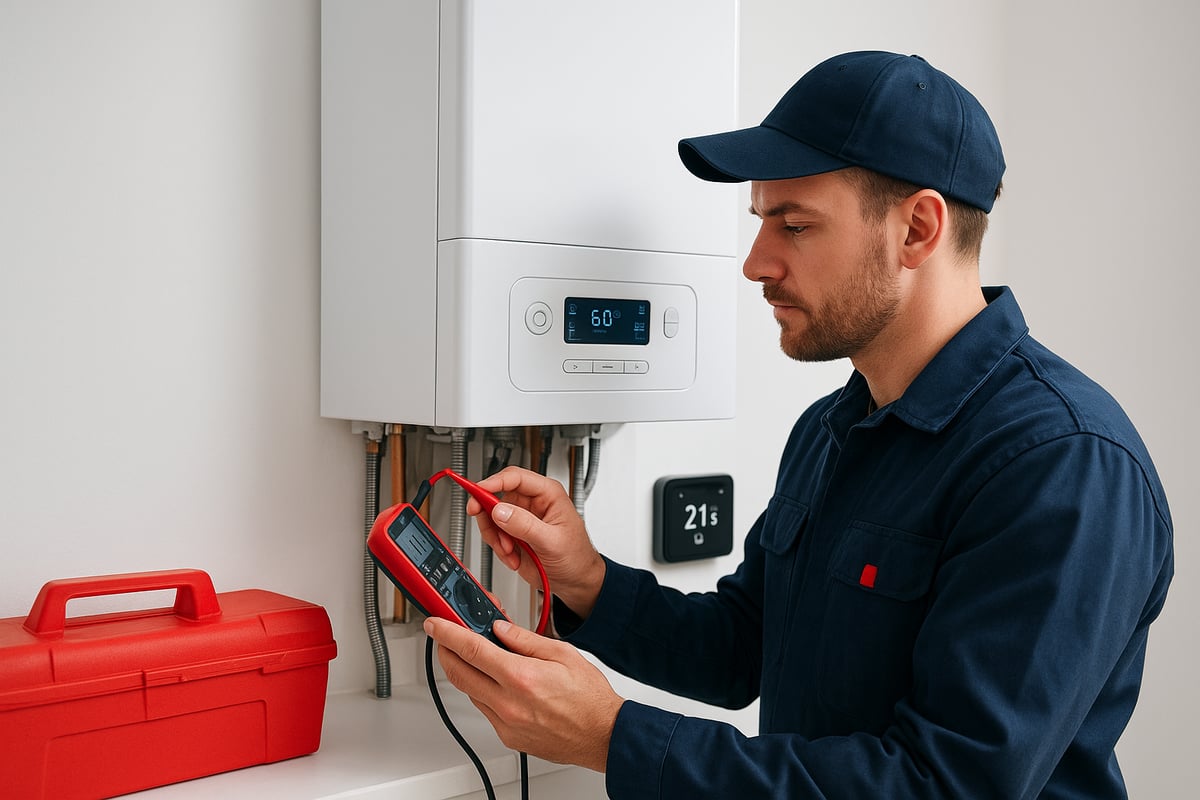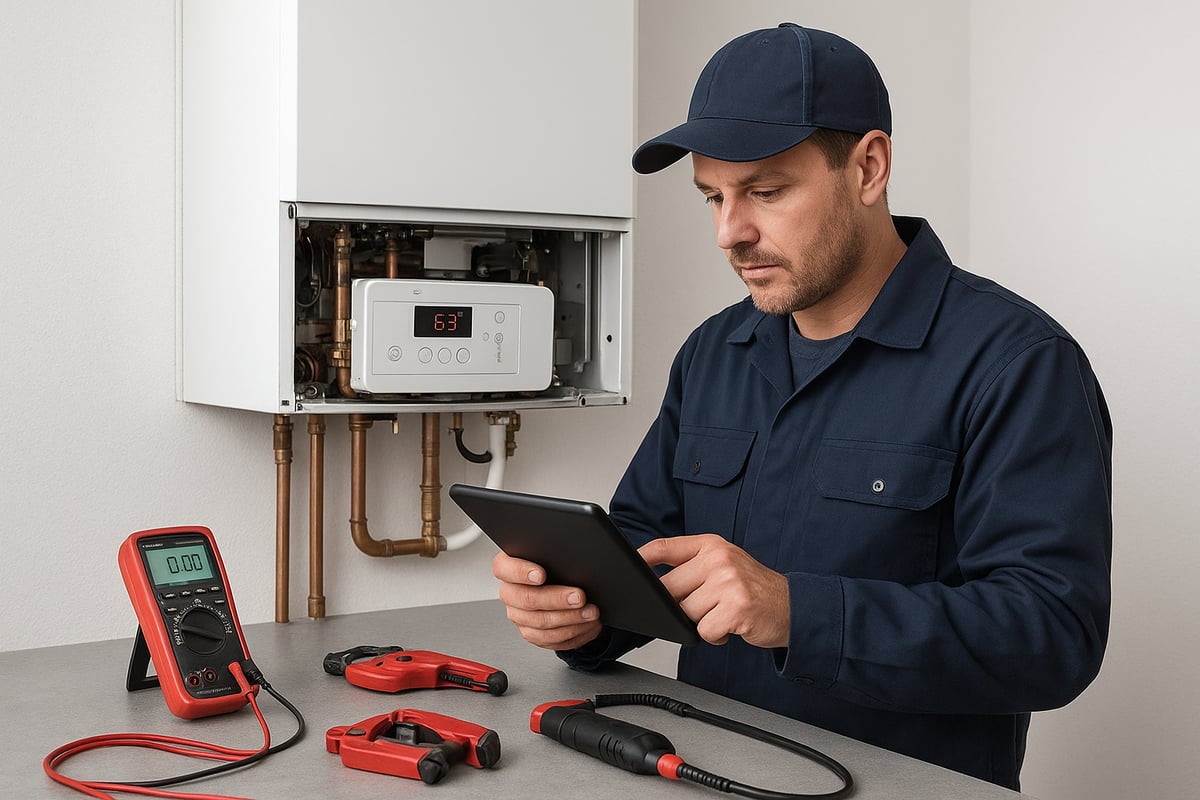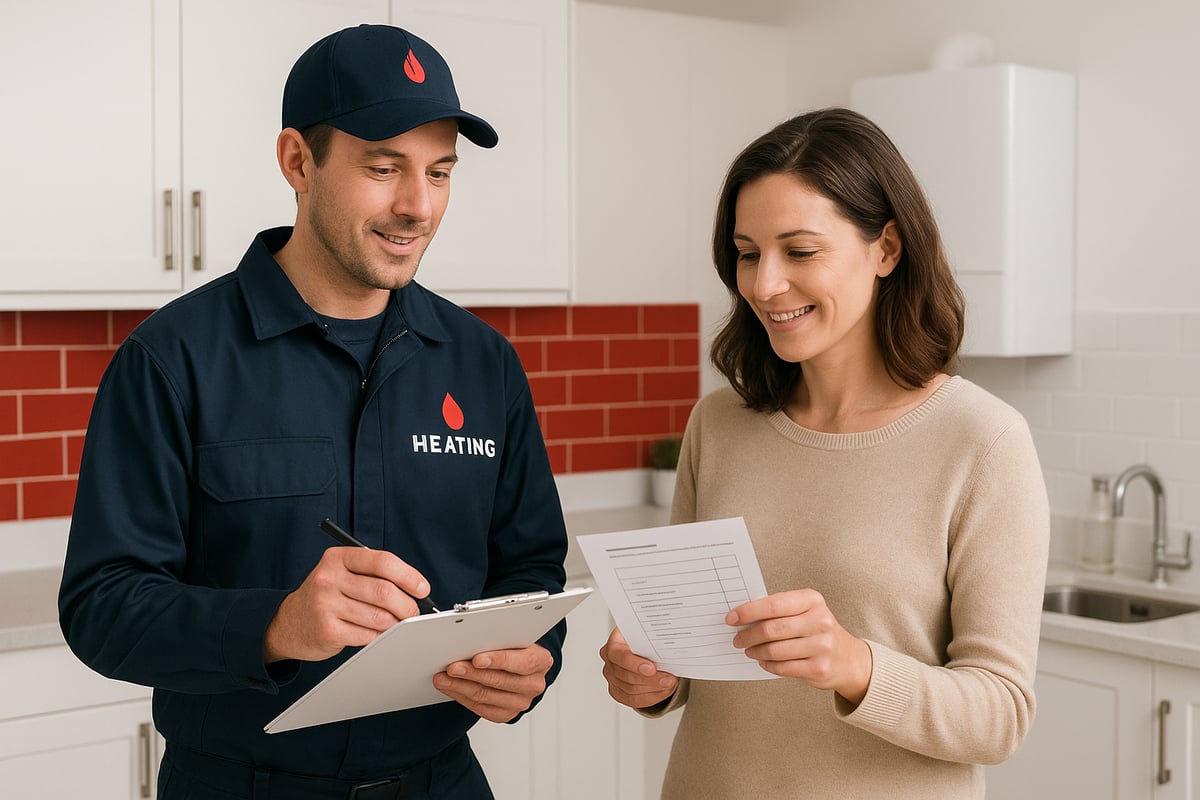7 Essential Skills Every Central Heating Engineer Should Have
A central heating engineer plays a vital role in keeping homes comfortable and safe throughout the year. As heating technology advances and energy efficiency becomes more important, the need for skilled professionals in this field continues to grow.
Mastering core skills not only opens doors for career development but also builds customer trust and reduces unnecessary call-backs. Whether troubleshooting a tricky boiler or installing the latest smart controls, expertise sets the best engineers apart.
This article highlights the seven essential skills every central heating engineer should have to excel in the UK’s ever-evolving heating industry.
The Evolving Role of a Central Heating Engineer
The role of a central heating engineer in the UK has evolved rapidly in recent years. Changing technologies, stricter regulations, and rising customer expectations mean this profession demands a broad set of skills. Whether servicing a Victorian terrace or fitting a modern heat pump, today’s central heating engineer must adapt to a dynamic industry and deliver top-tier results every time.

Understanding Modern Central Heating Systems
Central heating engineers now encounter a diverse range of systems in UK homes. Traditional gas boilers remain common, but there is a growing shift towards condensing boilers and renewable solutions like air source heat pumps. These modern systems are designed for higher efficiency and lower emissions, driven by updated energy regulations. As a result, a central heating engineer must understand both legacy systems and the latest eco-friendly technologies to meet varying client needs.
A summary of common systems:
| System Type | Typical Use | Efficiency Level |
|---|---|---|
| Standard Boiler | Older properties | Moderate |
| Condensing Boiler | Most new installs | High |
| Heat Pump | Modern builds | Very High |
| Electric Radiators | Flats, small homes | Moderate |
This wide variety requires ongoing learning and adaptability for every central heating engineer.
Regulatory and Safety Requirements
Safety and compliance are non-negotiable for every central heating engineer. Gas Safe registration is a legal requirement for anyone working with gas appliances in the UK. Engineers must also comply with Building Regulations and the Gas Safety (Installation and Use) Regulations. These standards ensure that all installations and repairs are performed safely and efficiently.
Over 72,000 reviews on Checkatrade highlight the high level of public trust placed in certified professionals. Regular training is essential for a central heating engineer to stay updated with regulatory changes and maintain their credentials. Accurate documentation and safety certificates are vital, protecting both engineers and customers.
Customer Expectations and Industry Trends
Today’s customers expect more from their central heating engineer than ever before. The demand for smart controls and remote diagnostics is rising, with homeowners seeking systems that are both efficient and easy to manage. Prompt, reliable service and clear communication are crucial to building trust and loyalty.
Reviews and word-of-mouth recommendations drive much of the business in this field. Clients frequently mention punctuality, tidiness, and knowledge as key factors when choosing a central heating engineer. Keeping up with industry trends and customer preferences is essential for long-term success.
Career Opportunities and Professional Development
A central heating engineer can pursue multiple career paths, from starting as an apprentice to progressing into senior roles or even running their own business. Continuous training and upskilling are vital, with numerous courses and certifications available across the UK. Many professionals now focus on renewable heating technologies and advanced diagnostics to stay ahead.
For a comprehensive look at qualifications and progression routes, see this heating engineer career path guide. Investing in professional development not only expands technical capabilities but also opens doors to management and business opportunities. As the industry evolves, a forward-thinking central heating engineer will always find room to grow.
7 Essential Skills Every Central Heating Engineer Should Have
Becoming a successful central heating engineer in the UK requires more than technical know-how. In a fast-evolving industry, engineers must master a blend of practical expertise, regulatory knowledge, and customer-facing skills. The following seven core competencies outline what it takes to excel and build a reputation for quality, reliability, and trust.

1. Technical Installation and Maintenance Skills
A central heating engineer must be adept at both installing and maintaining a wide range of heating systems. This includes traditional boilers, radiators, and the increasingly popular underfloor heating systems. Proficiency in these areas ensures safe, efficient operation for every household.
Key aspects of technical skills include:
- Installing boilers, radiators, and underfloor heating to manufacturer guidelines
- Diagnosing faults quickly and accurately
- Replacing or upgrading system components efficiently
Engineers often encounter situations where rapid assessment is vital. For example, in an emergency boiler breakdown, the central heating engineer needs to evaluate the problem, identify faulty parts, and implement a swift solution. This not only restores comfort for the customer but also demonstrates professional competence.
Familiarity with both gas and electric systems is essential. As technology advances, the ability to install and service smart thermostats and hybrid systems is becoming a core requirement. Using specialised tools such as multimeters and flue gas analysers, engineers troubleshoot complex issues and ensure systems operate at peak performance.
Understanding warranty requirements and adhering to manufacturer instructions protects both the homeowner and the engineer. A central heating engineer who invests in ongoing technical development is better positioned to adapt to innovations, resulting in fewer call-backs and more satisfied customers.
2. Gas Safety and Compliance Knowledge
Safety is paramount for any central heating engineer. Working with gas appliances means adhering to strict UK regulations, including mandatory Gas Safe registration. This certification proves that the engineer is qualified to handle gas systems safely and competently.
Key responsibilities involve:
- Performing safety checks on boilers and gas appliances
- Issuing compliance certificates following installation or servicing
- Identifying and mitigating risks such as gas leaks and carbon monoxide
Keeping up with regulatory changes, such as updates to Building Regulations and Gas Safety (Installation and Use) Regulations, is critical. Annual boiler servicing is a key element of this role, ensuring appliances remain safe and efficient. According to industry data, the average cost of a boiler service is £100, highlighting the value of routine checks and preventative maintenance. For more detailed guidance on servicing and its importance, see these boiler servicing and maintenance tips.
Record-keeping is another crucial skill. Accurate documentation supports compliance and provides evidence of service history, which is often required for warranty validation. By prioritising safety and legal obligations, a central heating engineer builds trust with customers and helps prevent dangerous incidents.
3. Problem-Solving and Diagnostic Abilities
Every central heating engineer must be a skilled problem-solver. Heating systems can fail in numerous ways, from radiators not warming up to unexplained noises from boilers. The ability to approach these challenges systematically is what separates a good engineer from a great one.
A structured diagnostic process involves:
- Using tools like multimeters and flue gas analysers to identify faults
- Interpreting error codes and system messages
- Differentiating between root causes and surface symptoms
For example, if a customer reports cold radiators, the central heating engineer should check for trapped air, faulty valves, or pump issues, rather than simply bleeding the radiator and moving on. This thorough approach minimises repeat visits and increases customer satisfaction.
Complex scenarios, such as emergency repairs during winter, test an engineer's ability to think clearly under pressure. The best professionals adapt their solutions to each unique situation, whether it is a common issue or a rare, complex fault.
By continually honing diagnostic skills and learning from each job, a central heating engineer ensures systems are restored quickly and reliably, reducing downtime for households and businesses.
4. Communication and Customer Service Skills
Clear communication is vital for any central heating engineer. Customers often lack technical knowledge, so explaining issues and solutions in plain language builds confidence and trust.
Key elements of excellent customer service include:
- Explaining technical problems and repair options clearly
- Managing expectations around timelines and costs
- Handling complaints professionally and diplomatically
Professionalism is reflected in punctuality, tidiness, and polite interaction. Many positive reviews highlight these attributes, revealing how much customers value respectful service. Aftercare is equally important, with follow-up visits and advice on system maintenance enhancing the customer experience.
Offering guidance on energy efficiency or preventative maintenance empowers clients to make informed decisions. With over 6.2 million reviews on Checkatrade, it is clear that customer service is a major factor in building a strong reputation as a central heating engineer.
Effective communication also includes providing timely updates, clear documentation, and straightforward invoicing. By prioritising customer relationships, engineers foster repeat business and valuable word-of-mouth referrals.
5. Attention to Detail and Organisational Skills
Precision and organisation are at the heart of a central heating engineer’s success. Every installation and service job requires careful planning and meticulous execution.
Essential organisational skills include:
- Accurate assessment of system requirements and installation plans
- Maintaining detailed records for each job, such as service logs and parts used
- Scheduling and prioritising appointments, especially urgent jobs
Attention to detail ensures all work meets the highest safety and quality standards. For instance, scheduling regular boiler servicing not only keeps systems running smoothly but also helps maintain manufacturer warranties. Cleanliness during and after work is another hallmark of professionalism, as customers appreciate a tidy home.
Keeping up with paperwork is more than a chore, it is vital for compliance and customer satisfaction. Detailed documentation reduces the risk of errors, supports warranty claims, and makes future servicing easier. By staying organised, a central heating engineer can manage a busy workload and earn greater customer trust.
6. Adaptability and Continuous Learning
The heating industry evolves rapidly, demanding that every central heating engineer remain adaptable. New technologies, regulations, and customer expectations require a commitment to ongoing learning.
Ways to stay ahead include:
- Attending manufacturer training and industry events
- Learning to install and maintain smart heating controls
- Upskilling in renewable technologies such as heat pumps and solar thermal systems
Adapting to seasonal workload fluctuations is also essential. During colder months, demand for repairs and installations spikes, while quieter periods provide opportunities for training and skill development. Networking with peers and joining professional bodies help engineers stay informed about best practices and regulatory changes.
Engineers who diversify their skills are often in higher demand, as reflected in job listings across the UK. By embracing new methods and technologies, a central heating engineer can future-proof their career and deliver better value to customers.
7. Physical and Mental Resilience
The role of a central heating engineer is physically and mentally demanding. Lifting heavy boilers, working in confined spaces, and coping with long hours—especially during emergencies—require stamina and resilience.
Key aspects of resilience include:
- Maintaining focus and safety under pressure
- Developing strategies for stress management and work-life balance
- Following health and safety best practices to prevent injuries
Working environments vary, from domestic homes to commercial properties, and conditions can be challenging, particularly during winter call-outs. Quick thinking and steady nerves are essential when dealing with urgent repairs that restore heating to vulnerable households.
A central heating engineer who looks after their physical and mental health not only delivers better service but also enjoys a more sustainable, fulfilling career. Long-term wellbeing supports consistent performance and job satisfaction, even as industry demands continue to change.
Tools and Technologies Every Central Heating Engineer Should Master
Every central heating engineer relies on a blend of traditional tools and modern technology to deliver exceptional service. Mastering these resources is fundamental for efficiency, accuracy, and customer satisfaction in the ever-evolving heating industry.

Essential Tools for Installation and Repair
A central heating engineer’s toolkit forms the backbone of reliable installations and repairs. The essentials include:
| Tool | Purpose | Example Use |
|---|---|---|
| Pipe Cutter | Cutting copper or plastic pipes | Fitting new radiators |
| Multimeter | Electrical fault diagnosis | Checking boiler circuits |
| Pressure Tester | Verifying system integrity | Testing for leaks |
| Flue Gas Analyser | Assessing combustion efficiency | Annual boiler servicing |
Each tool enables the central heating engineer to work precisely and safely. For example, a multimeter helps diagnose electrical issues, while a flue gas analyser ensures boilers operate efficiently. Proper tool use reduces errors and minimises repeat visits, keeping systems running smoothly for customers.
Embracing Digital Solutions and Smart Controls
Today’s central heating engineer must be comfortable with digital solutions and smart heating controls. Devices like smart thermostats and remote monitoring systems are now standard in many UK homes.
These technologies help engineers diagnose faults quickly and provide homeowners with greater control over their heating. For a comprehensive introduction to the latest smart systems, see this Smart heating controls guide.
Adopting digital tools improves service quality and energy efficiency. A central heating engineer who stays current with smart technology can offer customers valuable advice and future-proof their heating systems.
Software for Scheduling, Invoicing, and Compliance
Efficient management is crucial for every central heating engineer. Digital platforms simplify job scheduling, invoicing, and compliance documentation.
Mobile apps allow engineers to log service histories, issue digital compliance certificates, and communicate with clients effectively. This approach reduces paperwork and ensures nothing is overlooked.
By using specialised software, a central heating engineer can manage multiple appointments, prioritise urgent jobs, and maintain accurate records. This not only boosts productivity but also enhances professionalism and customer trust.
Training Resources and Industry Networks
Continuous learning is vital for any central heating engineer. Recommended training includes Gas Safe registration, manufacturer-specific courses, and renewable technology certifications.
Industry events and professional bodies provide opportunities for networking and knowledge sharing. Staying connected ensures engineers remain updated on best practices and regulatory changes.
Joining these networks and completing regular training helps a central heating engineer adapt to new technologies and maintain the highest standards of workmanship. Commitment to professional development is a hallmark of a trusted engineer.
How to Choose the Right Central Heating Engineer
Selecting the right central heating engineer can make the difference between a safe, efficient heating system and recurring problems. With so many options available, it is essential to consider several factors before making your decision. From qualifications and reviews to professionalism and local expertise, each aspect contributes to a positive experience and long-term peace of mind.

Qualifications and Certifications to Look For
A reputable central heating engineer must hold the right qualifications and certifications. Gas Safe registration is a legal requirement for anyone working on gas appliances in the UK. Always ask to see their Gas Safe ID card before work begins.
In addition to Gas Safe, many engineers hold extra certifications such as Part P for electrical safety or manufacturer-specific approvals. These demonstrate a commitment to high standards and up-to-date skills. For a detailed overview of what to look for, consult the Heating engineer qualifications guide. Verifying these credentials ensures your central heating engineer is both competent and compliant.
Reading Reviews and Comparing Quotes
Customer feedback is invaluable when choosing a central heating engineer. Online platforms like Checkatrade, TrustATrader, and Google provide insight into the experiences of previous clients. Look for patterns in reviews, such as punctuality, reliability, and the quality of workmanship.
Do not settle for the first quote you receive. Gather at least three detailed quotes to compare pricing, services, and timelines. This approach helps you understand market rates and avoid hidden costs. A central heating engineer with consistently positive feedback and transparent pricing is more likely to deliver reliable service.
Assessing Professionalism and Insurance
Professionalism sets the best central heating engineer apart from the rest. From the first enquiry, assess how promptly and clearly they communicate. A reputable engineer will provide written estimates, answer questions thoroughly, and respect your home.
Insurance is non-negotiable. Ensure your central heating engineer holds valid public liability insurance to protect against accidental damage or injury. During the job, observe their punctuality, tidiness, and respect for your property. Professional behaviour at every stage demonstrates reliability and builds trust.
Local Expertise and Aftercare Services
Choosing a local central heating engineer offers several advantages. Local professionals often have a better understanding of common heating systems in your area and can respond quickly to emergencies. They are also more likely to offer tailored aftercare, such as annual servicing or maintenance contracts.
Look for engineers who provide comprehensive aftercare, including emergency call-outs. This ensures ongoing support if issues arise in the future. For more on the full range of services, visit central heating installation services. A central heating engineer with strong local knowledge and aftercare options delivers greater peace of mind and long-term value.
As you’ve seen, being a great central heating engineer is about so much more than technical know how—it’s about safety, reliability, and building real trust with every home you step into. Whether you’re looking to upskill, find a dependable expert, or simply want your heating system in safe hands, you deserve a team that truly understands what matters. If you’re in Kent and want to experience the difference that genuine expertise makes, let’s keep your home warm, dry, and running smoothly. Keeping Homes in and around kent Warm, Dry & Flowing Book with castle heating kent

